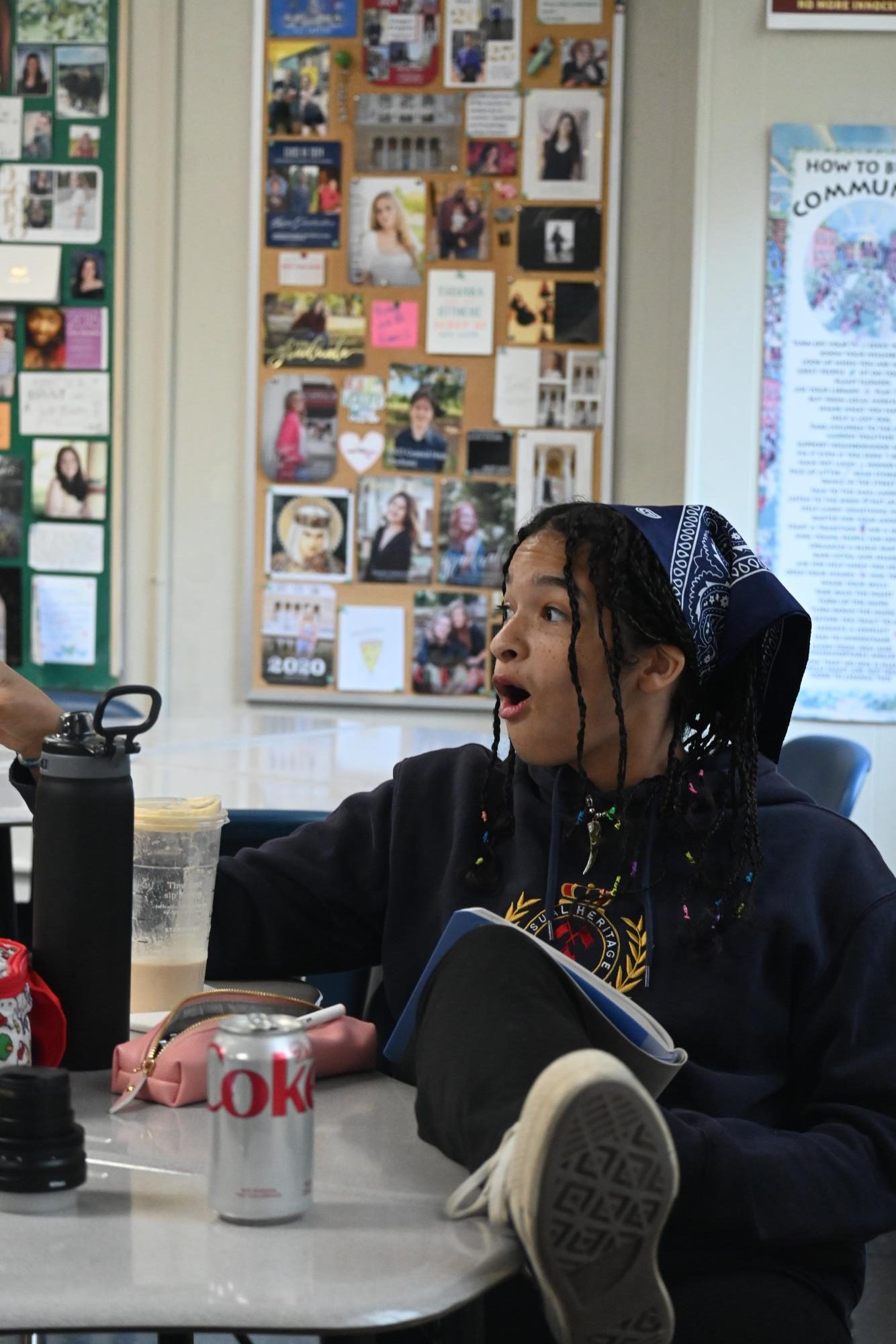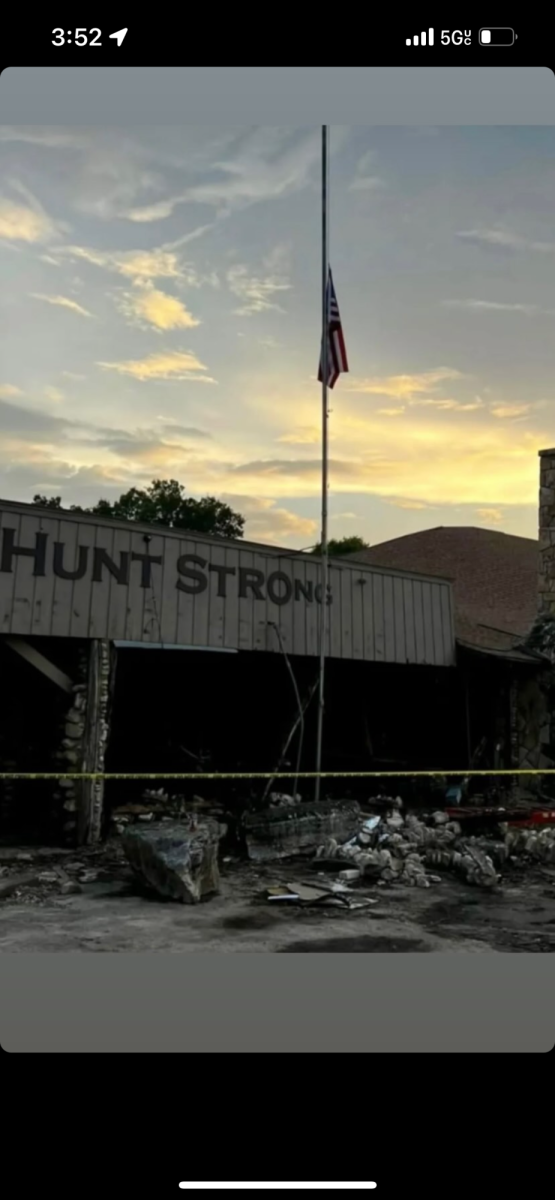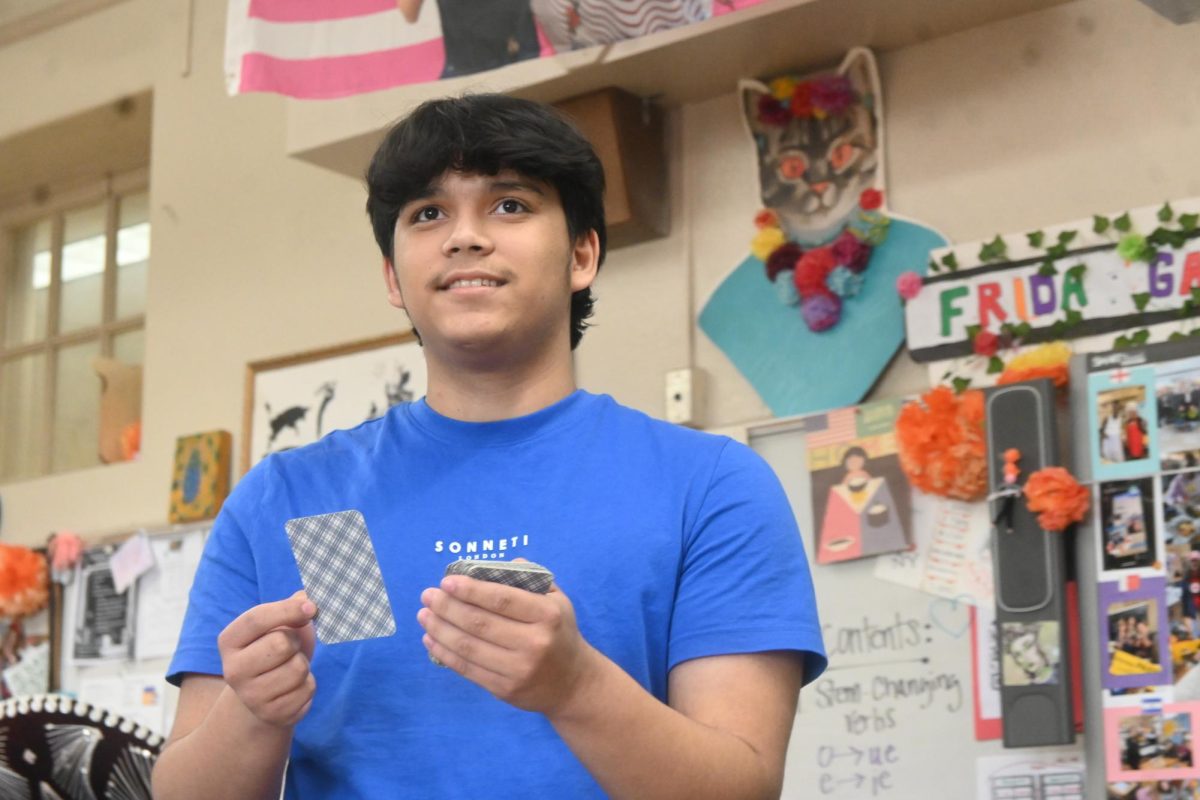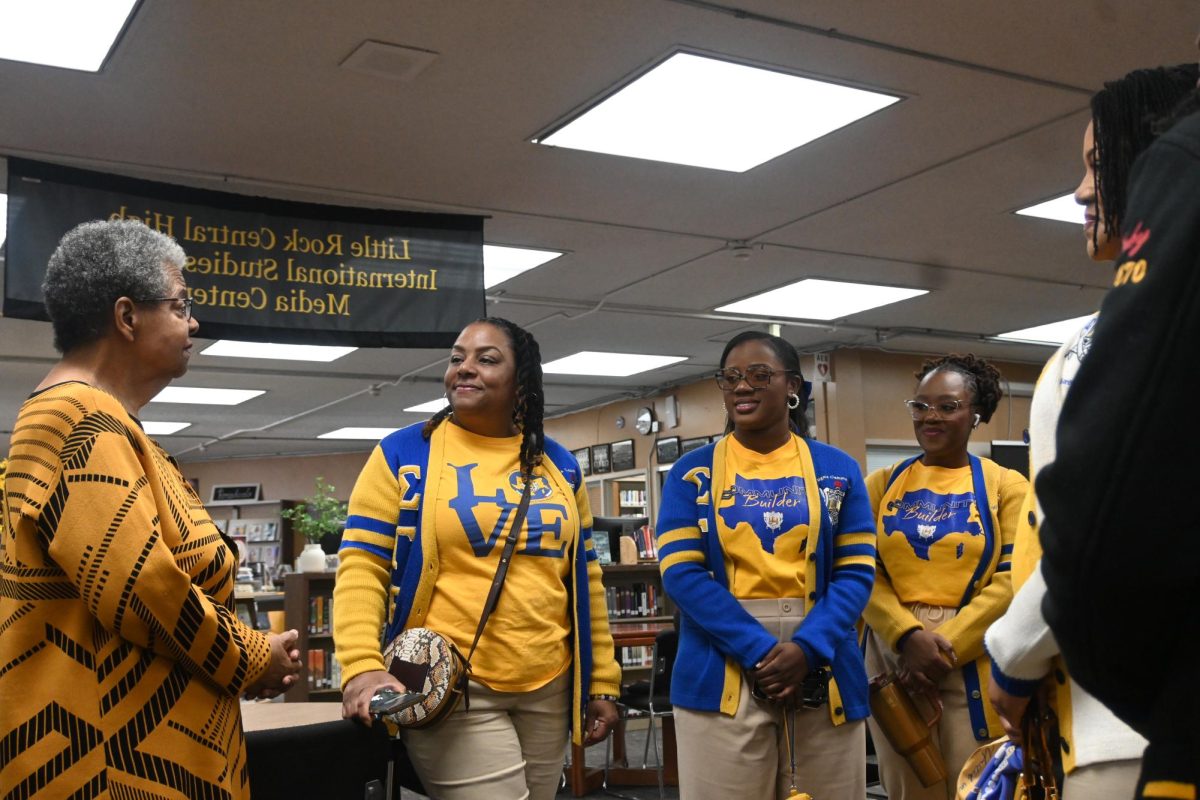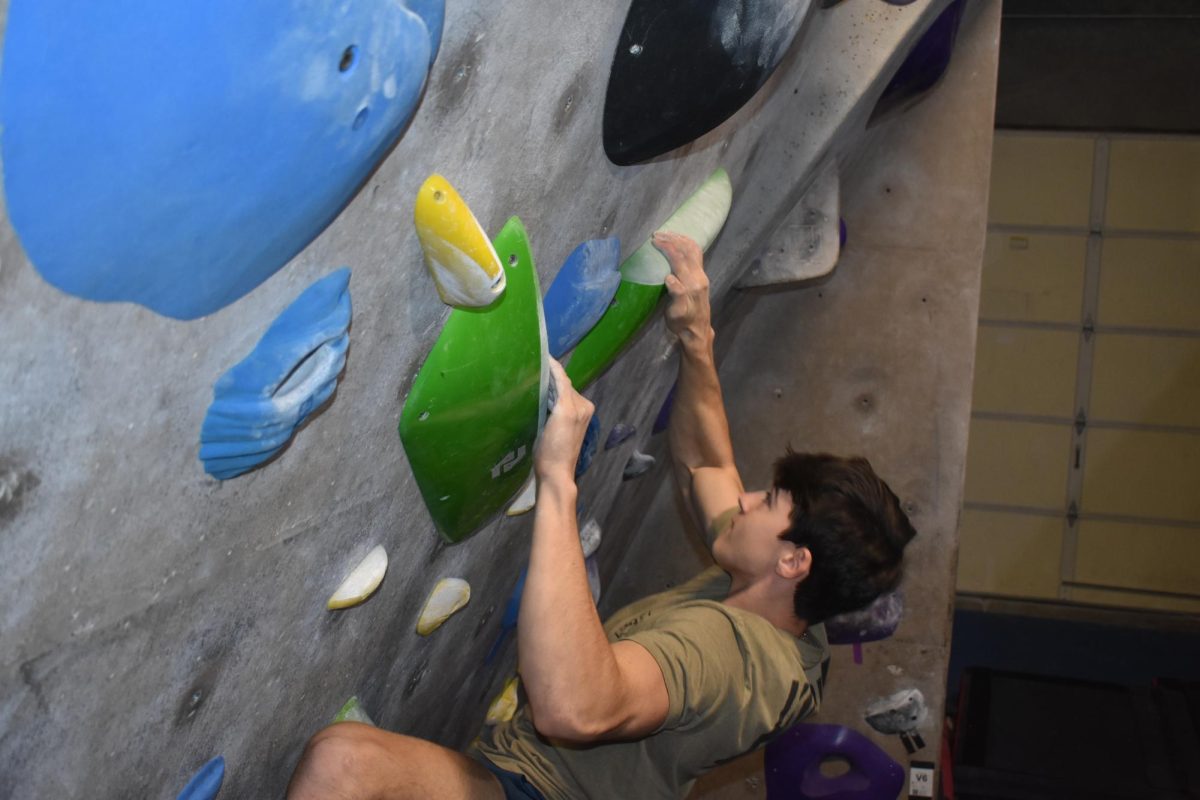Immersed in the chaotic era of World War II, freshman Rini Eluvathingal steps into the role of a lawyer defending Japan after the atomic bombing on Hiroshima and Nagasaki by the United States. But then the bell rings and Eluvathingal leaves her AP Human Geography class and heads to her third period.
Now a senior, Eluvathingal is able to understand complex global issues through interactive learning in the classroom. Eluvathingal has taken AP history courses from ninth to twelfth grade, broadening her knowledge of geopolitics.
“I had [Adam] Kirby my freshman year for AP Human Geo (AP Human Geography), and I really liked the way he explained stuff and brought in wild topics that I wouldn’t think connected at all,” said Eluvathingal. “Especially the really niche discussions, that can actually last a while.”
Similar to the simulations she participated in during her freshman year, Eluvathingal’s AP Government and Politics class focused on scenarios based on relevant political events, in this case the 2024 election year.
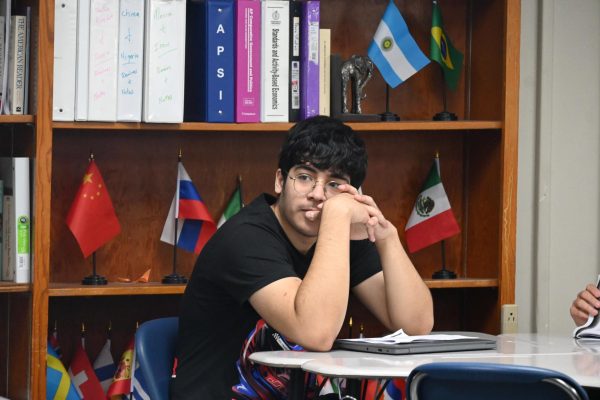
“For AP Gov. [Mr. Kirby] made us choose candidates running for election that year, and we had to be their campaign managers and see what they would need to emphasize in order to get reelected,” said Eluvathingal. “One example was flooding in Florida. How would a Florida Senator use the flooding to their advantage to get elected for their campaign? I think it’s pretty interesting [how he] always manages to use simulations that mimic the real world.”
Through her experience in these classes Eluvathingal learned the essential nature of being politically aware. For future prospects, Eluvathingal aspires to apply her knowledge to protect herself and others from any infringement on their rights.
“I think politics is so instrumental to everyone’s lives, because everyone is influenced by politics, right?” Eluvathingal said. “So whatever I learned from these classes, I could see being used to advocate [against] oppression.”
To support similar experiences, the school offers classes and clubs to explore diverse ideas through learning about recent and historical global conflicts. Kirby relays the importance of accessible international affairs classes for this generation in his AP Comparative Government and Politics, AP U.S. Government and Politics, and Advanced Civics and Economics courses.
“I think [international relations] is one of the most important topics because of globalization,” said Kirby. “The world is smaller, and as a generational cohort [students] have access to more of the world.”
As the only AP Comparative Government and Politics teacher in the district, Kirby shapes the course to incorporate more interactive learning rather than traditional methods.
“I like to say that the folks that take [AP] Comparative Government are unicorns because they have an interest. Each given year I think each student at some point comes to that lightbulb moment,” said Kirby. “So it’s rewarding. It’s the class I love to teach.
Likewise, AP World History and AP European History teacher Chris Dorer emphasizes the importance of history classes to grasp modern-day international challenges.
“By understanding the root cause, students today can figure out where things went wrong with modern conflict, and how to be more aware culturally,” said Dorer. “Because a lot of it comes down to cultural misunderstanding.”
By introducing students to commonalities in practices, forming governments, and struggles it allows students to build critical historic thinking skills. Concerning society’s polarizing approach to controversies, in the classroom, Dorer makes sure all conversations with differing opinions remain respectful.
“We’re too focused on the differences, we look past the similarities to try to separate ourselves out,” said Dorer. “When really, if we say we both have a lot of the same ideas, maybe we just do them differently.”
Recognizing the events and mistakes of the past through history classes offers a way to come to civil agreements in the present.
“I think that if you were to put people who say they’re opposed to each other in the same room, more often than not, they’re going to find that they have common ground,” said Dorer. “They can use that common ground as a starting place to move forward and they can build and facilitate friendships.”
As well as the school’s multiple social studies classes offered at every grade level, it also provides clubs that cater to students with similar interests. Senior Moojin Min serves as president of the Model United Nations Club, which became active again two years ago.
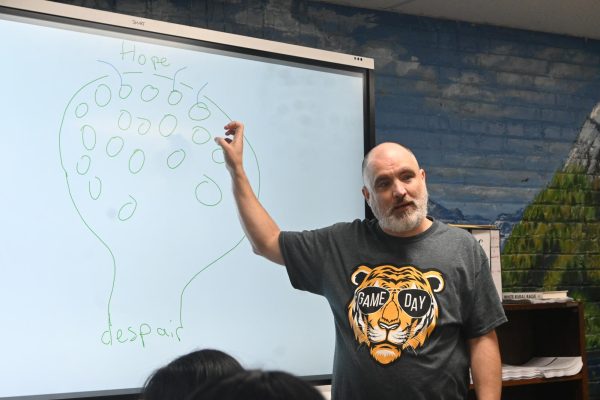
“I [restarted] the club in order to pursue my own interest in the world along with people that are politically motivated,” Min said.
Attending Model UN Conferences introduced Min to a variety of international perspectives.
“Going to these conferences and learning about different countries can expose you to a lot of different viewpoints,” Min said.
The new team gained essential skills through participating in multifaceted discussions simulating United Nations’ General Assembly and Crisis committees to cover numerous topics, from climate crises in Bikini Bottom to the pressing issues of child labor in third world countries.
“Via the start of the club [the team] exposed ourselves to a new environment. We were able to talk more, and though we didn’t come back victorious, we learned how to do it next time,” Min said. “We learned how to grow.”
Min emphasizes participation in clubs that accommodate personal interests, but also require students to step out of their comfort zone. Classes and clubs focused on international affairs provide a direct gateway to students’ future ambitions.
“Well, I mean on the surface level, being able to or learning how to talk in front of people in different situations improves my flexibility as a worker in all fields. Specifically looking into a career in either economics or international relations, it directly impacts what I can expect in the future, and [makes me] eager to learn more about it.” said Min.





